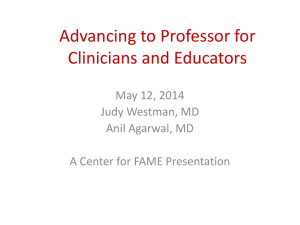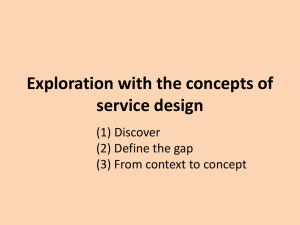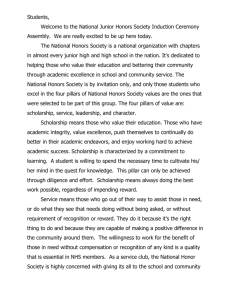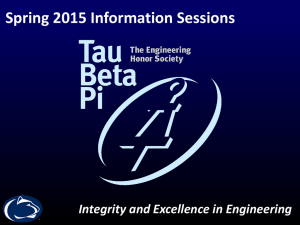Teaching Activities Report
advertisement
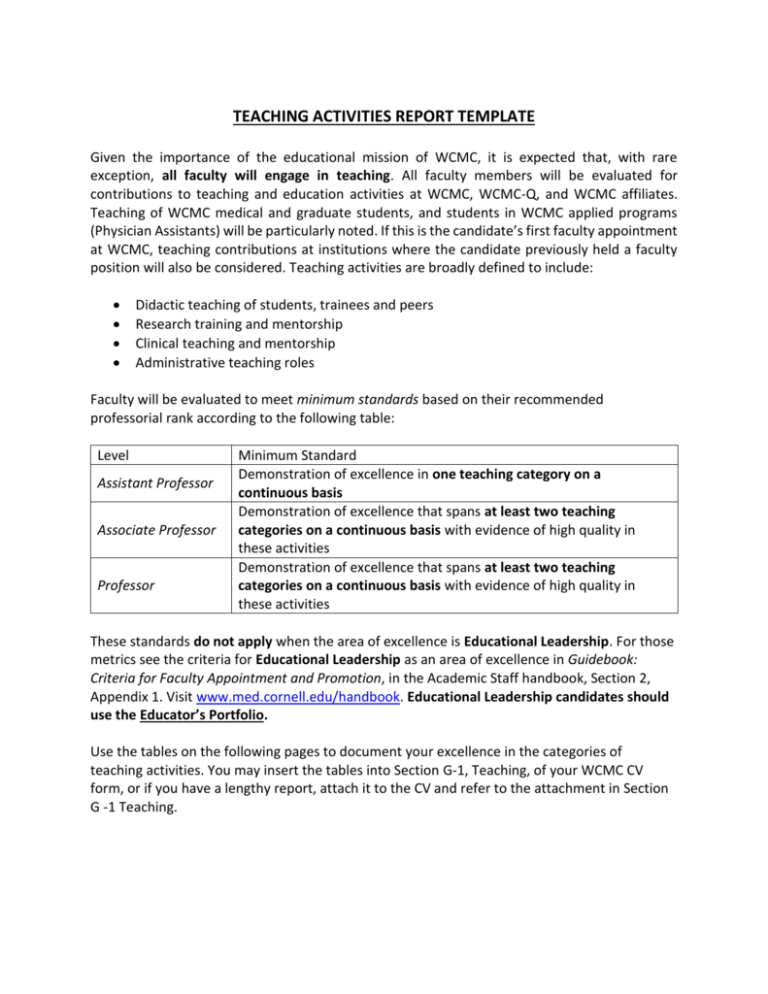
TEACHING ACTIVITIES REPORT TEMPLATE Given the importance of the educational mission of WCMC, it is expected that, with rare exception, all faculty will engage in teaching. All faculty members will be evaluated for contributions to teaching and education activities at WCMC, WCMC-Q, and WCMC affiliates. Teaching of WCMC medical and graduate students, and students in WCMC applied programs (Physician Assistants) will be particularly noted. If this is the candidate’s first faculty appointment at WCMC, teaching contributions at institutions where the candidate previously held a faculty position will also be considered. Teaching activities are broadly defined to include: Didactic teaching of students, trainees and peers Research training and mentorship Clinical teaching and mentorship Administrative teaching roles Faculty will be evaluated to meet minimum standards based on their recommended professorial rank according to the following table: Level Assistant Professor Associate Professor Professor Minimum Standard Demonstration of excellence in one teaching category on a continuous basis Demonstration of excellence that spans at least two teaching categories on a continuous basis with evidence of high quality in these activities Demonstration of excellence that spans at least two teaching categories on a continuous basis with evidence of high quality in these activities These standards do not apply when the area of excellence is Educational Leadership. For those metrics see the criteria for Educational Leadership as an area of excellence in Guidebook: Criteria for Faculty Appointment and Promotion, in the Academic Staff handbook, Section 2, Appendix 1. Visit www.med.cornell.edu/handbook. Educational Leadership candidates should use the Educator’s Portfolio. Use the tables on the following pages to document your excellence in the categories of teaching activities. You may insert the tables into Section G-1, Teaching, of your WCMC CV form, or if you have a lengthy report, attach it to the CV and refer to the attachment in Section G -1 Teaching. Teaching may take the form of: Didactic teaching (e.g., lectures, continuing medical education courses, grand rounds, professional development programs, seminars, tutorials) Examples of Metrics Report level of activity (noting lectures and courses taught) and measures of quality (e.g., participant or peer evaluation); specifically note WCMC courses for graduate allied health, and medical students May note if candidate has devised innovative methods in classroom teaching and/or taught or lectured on issues related to education Mentorship (e.g., mentor for medical student, graduate student, resident, clinical or postdoctoral research fellow or junior faculty projects; service as graduate student thesis advisor or committee member) Clinical teaching (e.g., teaching in the clinic or hospital including bedside teaching, teaching in the operating room, preceptor in clinic) Quantified level of activity Quality of teaching as measured by evaluations by students, residents, fellows, others Administrative teaching leadership role (e.g., residency or fellowship director, course or seminar director or co-director) Quality as measured by evaluations and success of courses/programs for which the candidate was a leader Number and stature of individuals upon whom the candidate had a major influence Feedback from mentees, if available Publications with mentees Use the table below to list your activities and contributions here. Be sure to include evidence for excellence in each category. Expand the table as needed. DIDACTIC TEACHING Evidence of Excellence MENTORSHIP Evidence of Excellence CLINICAL TEACHING Evidence of Excellence ADMIN/LEADERSHIP TEACHING ROLES Evidence of Excellence Recognition and Scholarship Recognition and Scholarship in Education are valued but not required as part of the minimum standard for teaching excellence for faculty whose area of excellence is not Educational Leadership. When this is not the area of excellence, faculty may not have recognition for teaching activities or educational scholarship. If they do, all should be listed. Examples of Metrics Recognition* Scholarship* Invited presentations in the field of expertise Contributions to professional educational organizations Leadership role in education Service on education-related committees Awards for teaching, mentoring or other educationrelated achievements Development of educational materials (e.g., syllabi or curricula) and/or publications related to education Additional Information regarding Recognition and Scholarship Metrics in Teaching and Education for all individuals seeking appointment within the area of Clinical Expertise and Innovation. For individuals seeking appointment or promotion within the area of Clinical Expertise and Innovation, Recognition and Scholarship in the area of Education are not required as part of the minimum standard of excellence, but when present, are valued. The Table below gives examples of metrics for Recognition and Scholarship in Teaching and Education. Recognition and Scholarship Metrics in Teaching Recognition related to teaching of medical professionals Invited presentations in the field of expertise Contributions to professional educational organizations Leadership role in education Service on education-related committees Awards for teaching, mentoring or other education-related achievements Development of educational materials (e.g., syllabi or curricula) and/or publications related to education Development of material related to health conditions for use by patients Development of programs and material that improve health literacy and educate the public about biomedical sciences Writing for magazines, newspapers, health letters or websites on issues related to health Publication of books for the public that address important health issues Speaking to lay populations to educate them about important health issues Presenting information related to health through the media, including radio, television or podcasts Educating and mentoring pre-professional students in biomedical science Service to communities locally, nationally or abroad that improves the health of populations such as through improved delivery of care, provision of disaster/ crisis relief or a decrease in health disparities Awards recognizing contributions to patient and community education, access to care for underserved populations, community service, and/or the health of the public Invitations to speak to lay audiences on issues related to health Scholarship related to teaching Recognition related to teaching of patients and lay individuals RECOGNITION SCHOLARSHIP Membership on the advisory boards of lay health-related organizations or government committees evaluating healthrelated issues Widespread use of patient education materials developed Evidence of Excellence Evidence of Excellence

